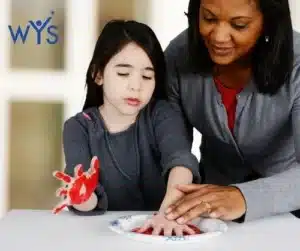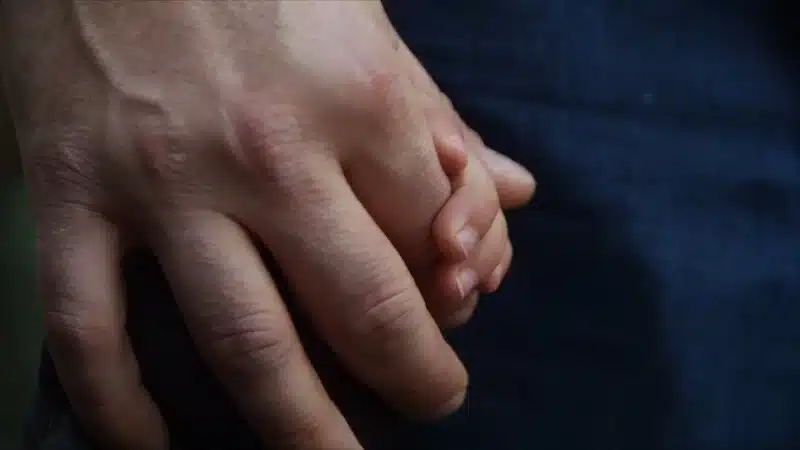
Teachers are Mental Health Champions
Mental health is perhaps one of the most important yet severely overlooked obstacles to children’s ability to learn.
For children and teens, signs of mental illness often manifest first in their performance and behavior at school. Teachers may observe a student’s difficulty concentrating, chronic absence, low achievement, disruptive behavior, mood swings, disinterest and/or isolation, among other symptoms. This means that it is often teachers who are on the front line of defense and are among our greatest assets in knowing when treatment may be needed. By providing teachers with information, training and support, they can become champions of mental health and our children.
We saw the need to empower this group of mental health champions back in 1972, when WYS (aka the Teenage Resource Center) was founded by a caring group of community leaders, including a teacher and a school principal. There were kids falling through the cracks then and sadly, they still do. The difference is we now have facts and experience proving that there are many ways to help a child that is in pain. Since the 1990’s, WYS has officially partnered with school districts throughout Orange County, CA. We have empowered thousands of teachers and together have helped more than ten thousand students.
“School-based behavioral and mental health prevention and early intervention services promote psychological wellness for all children, improve positive child development, and maximize children’s success in schools, families, and communities.”
National Association of School Psychologists (NASP)
Break the Barrier of the Silent Epidemic
1 in 5 children ages 13-18 will experience a mental illness and not every school has the resources to help them. NPR has called this a “silent epidemic.” Students who display symptoms of anxiety, depression, substance abuse or other mood disorders may not be getting the help they need.
- 1 in 5 kids experiences a mental health condition; only 20% of them actually get help
- About 50% of students ages 14+ with a mental health condition will drop out of school
- Suicide is the second-leading cause of death for 15-24 year olds
- The earlier the better: early identification and intervention provides better outcomes (from NAMI)
Teachers and school personnel are well positioned to identify and support children with mental health conditions. By knowing the early warning signs of an emerging mental health condition, creating a culture of constructive classroom/school habits, communicating with parents/guardians, and/or connecting at-risk students with partnered or vetted professional mental health services can start the path to lasting change in the life of children and youth.
There is no question that teachers are overburdened, but think about how much time and effort is spent trying to teach a child in distress. Incorporating these skills will ultimately create a classroom with fewer disruptions and provide more time for learning. Early intervention is critical to a successful outcome and a win for both teachers and students.
Teachers Lead the Way to Resiliency
From our perspective, the role that teachers contribute is integral to the well-being and growth of our children. We all have had at least one teacher who supported us in some way. Please share this information with teachers that you know, together let’s empower them to continue to create a positive change for this and future generations.
Below are strategies and techniques that teachers can easily roll into their daily curriculum, they are not invasive or clinical at all and they can also be incorporated into your families, your place of work, or any place you gather with people…adjust as needed.
First and foremost, it is important to know that resiliency heals adversity. We regularly host screenings of a powerful documentary film titled Resilience: The Biology of Stress and the Science of Hope. Click below to see a short segment explaining how resiliency is the key to moving past childhood adversity and toxic stress. If you are in Orange County, CA and would like to learn more about a screening for your group, please contact us at [email protected]
Adversity happens to everyone. It does not matter if it is a big or small event, if it triggers toxic stress there is adversity. Multiple episodes of adversity build, as does the stress, this will lead to larger, more complex issues such as depression and anxiety. Knowing that we all experience adversity and that it is a natural part of life, leads directly to talking about a solution. The solution is to build the resiliency muscle so as life happens, you are prepared to overcome challenges and maintain good mental health and wellness. Imagine giving every child you know the gift of knowing how to face difficult situations before they move into adulthood.
Teachers create a sense of belonging in the classroom. Everyone wants to feel accepted and connected to others. Teachers make an extra effort to building community and interaction among students, in the classroom and the school community at large. This builds trust, relationships, and fosters resiliency.

Children do best when they shine. Every child has something special about them, a skill, a talent or a proficiency they might not know about yet. When teachers create a safe space where students can explore who they are within a framework of set actions and goals students can develop individual talents and interests and ultimately improve their academic success. When children feel competent, their confidence grows and this too builds resiliency. They learn that they may not yet know the way but it can be explored and ultimately found.
Similarly, if your school has a vision statement, carry it through into the classroom. As a group activity, have the students help add to it by creating a list of positive behaviors such as respect, responsibility, and kindness and avoid negative behaviors such as bullying and harassment.
Provide easily understood rules of conduct and fair discipline practices in your classroom. Encourage children to work together to stand up to a bully, encourage them to reach out to quiet students, and celebrate random acts of kindness.
Encourage teamwork and helping others. Kids love to make a difference. One of the patterns we see with our clients that overcome adversity is that they want to reach out and help others. A strong classroom community builds self-esteem and personal responsibility. Sadly, for some, this may be their first experience of being part of a healthy community.
Suggestions for incorporating healthy practices into your teaching:
- Move around. If the levels of negativity start to rise, do something physical. A few seconds of jumping jacks or taking deep breaths can immediately elevate the mood, plus it’s good for you, too.
- Start “gratitude journals” with each student and take a couple of minutes each day to write in them.
- Talk about healthy habits, eating, sleeping, exercising, etc. Opening the conversation may reveal something or be the start of good lifelong habits.
- Allow meditation or deep breathing exercises into the day.
- Problem-solving strategies can be applied to academic and life challenges.
- Go outside as often as possible.
- Teach organizational and goal-setting skills.
When to get Professional Help
Whether your school provides mental health evaluations and services for its students or if parents need to be contacted to find mental health services after school hours, if a student is struggling with a mental health concern, connecting families to resources will help your students, classroom, and school. Sometimes it is best to outsource to professional help.
This is particularly important if it seems that the symptoms are getting worse, they are interfering with a student’s ability to function day-to-day, or if the child has explicitly asked for help or counsel. When it comes to addressing the mental health of our youth, staying on the safe side is always your best bet.
Healing is not only possible, but we can also encourage and teach children resiliency, empowerment, empathy, and self-esteem.

Lorry Leigh Belhumeur, Ph.D.
Chief Executive Officer
Western Youth Services







